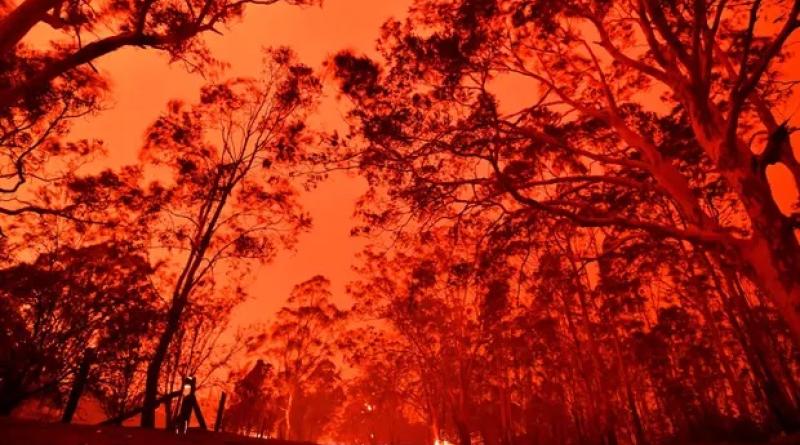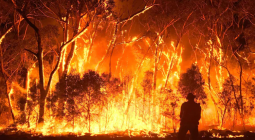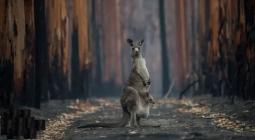More than 2,400 lives will be lost to bushfires in Australia over a decade, experts predict

Exclusive: Healthcare costs from smoke-related deaths tipped to reach $110m, new modelling led by Monash University suggests
In the decade to 2030, more than 2,400 lives will be lost to bushfires in Australia, with healthcare costs from smoke-related deaths tipped to reach $110m, new modelling led by Monash University suggests.
The lead health economist with the university’s Centre for Medicine Use and Safety, Associate Prof Zanfina Ademi, who headed the analysis, said it was important to get a predictive picture of the bushfire situation in Australia and its impact on health and the economy.
“This will underline preventive investment strategies to mitigate the incidence and severity of future bushfires in Australia,” she said.
The black summer bushfires in 2019-20 saw almost 20m hectares of land burnt and 34 lives lost directly. One analysis estimated 417 excess deaths resulted from longer-term consequences of the fires and smoke exposure.
Ademi said it was unclear what the health and economic burden of bushfires in the future may be. She and her team constructed a model that simulated follow-up of the entire Australian population yearly from 2021 to 2030, capturing bushfire deaths and years of life lived. The population in the model was updated each year by considering births, deaths and net inward migration.
The impact of bushfires on gross domestic product over this period totalled $17.2bn, the model predicted, while 2,418 lives would be lost to bushfires. The model made conservative predictions, as it assumed no changes to GDP over the time period given uncertainty regarding inflation in the current economic climate.
The model also did not estimate the health burden of bushfire smoke due to non-physical conditions, such as mental health, nor the burden borne by community-based healthcare services, and did not capture the impact on GP consultations nor the increased dispensation of medications for respiratory conditions. The costs of devoting healthcare resources away from other conditions was also not considered.
“Even based on conservative assumptions, the health and economic burden of bushfires in Australia looms large,” the paper, published in the journal Current Problems in Cardiology, concluded.
“Human-induced climate change is increasing the likelihood of catastrophic wildfires. This underscores the importance of actions to mitigate bushfire risk.”
Ademi said measures such as improved fuel reduction and prescribed burning practices would be crucial to reduce health and economic burdens. While individual action was important, such as reducing fuel around property, adhering to total fire bans and reconsidering living in areas likely to be affected by fire – which she said for many people was not a “choice” – these individual actions were not enough to mitigate risk.
“We need urgent involvement of government to speed up implementation of green and sustainable technologies, and we need to use collective actions at our disposable for effective social change,” she said.
Dr Arnagretta Hunter, a cardiologist and Human Futures Fellow at the Australian National University, said there were many opportunities to change the trajectory of increasingly severe health and environmental impacts due to fires.
“It’s not a recipe for despair,” Hunter said.
“We should be empowered to see the opportunities for change that will actually make our lives better, and to harness community-based collaboration to prepare for things that haven’t happened before.
“The air that we breathe, the food that we eat, the water that we need, the prices that we pay, the loss of housing, the loss of community, all these things are connected and directly impact our health and wellbeing. Especially with the change of government this year we are seeing opportunities again to discuss all of this and to reinvest in health and climate change. There’s a lot of things that are changing in the landscape.
“I think what has been most powerful is that we can actually say ‘climate change’ out loud now, it’s losing its political, partisan power, and we can now acknowledge the science and discuss it intelligently and robustly, engaging our community in that discussion. And that’s an extraordinarily important part of how we prepare.”
cover photo: Bushfires around Nowra during black summer. Experts hope a predictive picture of the fire situation and its impact on health and the economy will aid prevention strategies. Photograph: Saeed Khan/AFP/Getty Images




